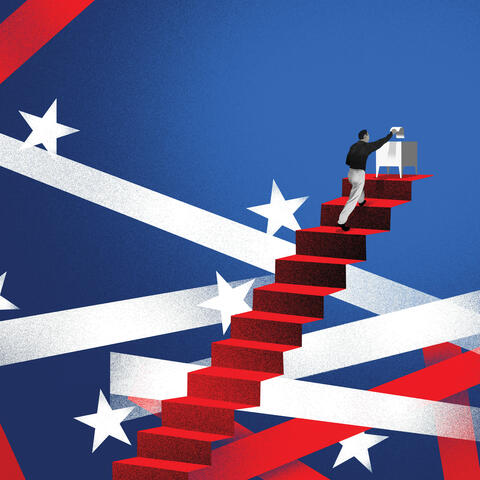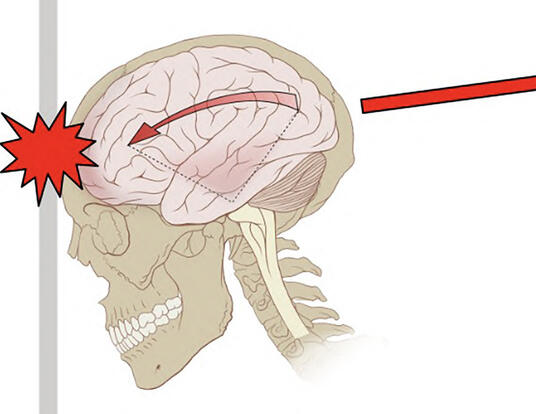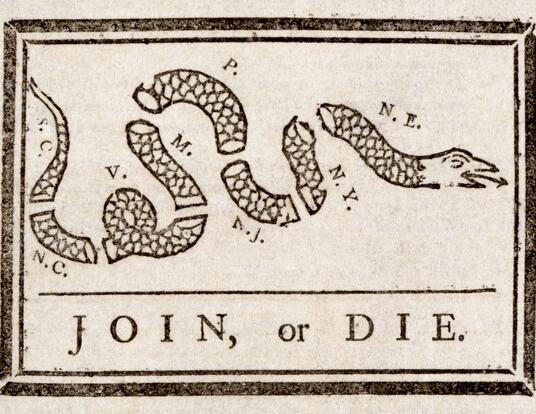Colloquy Podcast: When Home Is the Barrel of a Gun
Giving voice to nearly 2 million people displaced by terror
In 2014, Boko Haram terrorists kidnapped 276 female students from their dormitory at the Government Girls Secondary School in the Nigerian town of Chibok. The act inspired international outrage and a worldwide campaign to #BringBackOurGirls. Far less attention has been paid, however, to the plight of those who escape Boko Haram’s violence and become displaced within their own country. Now, anthropologist Gbemisola Abiola, PhD '23, is exploring different sites—camps, informal settlements, and host communities—where internally displaced persons (IDP) resettle. In this episode of Colloquy, Abiola discusses protracted displacement, the new structures of social and economic life that emerge from it, and the different survival strategies and tools IDP use to rebuild their lives. (Note: This talk was originally given during the Harvard Horizons Symposium in 2023.)
Bring back our girls. I'm sure you've seen this hashtag and heard of the story of over 250 schoolgirls abducted by Boko Haram from the town of Chibok in Borno State in Nigeria in 2014.
What you may not have heard about are the stories of over two million people displaced by Boko Haram and ISWAP in Northeast Nigeria.
As an anthropologist, I traveled to Maiduguri, the capital city of Borno State multiple times between 2018 and 2021 to study internal displacement.
I did this study because I had two central concerns. One, I wanted to understand how internally displaced people, IDPs, whose stories never made it to the headlines, survive in different displacement sites, camps, settlements, and host communities.
Two, I wanted to learn how displacement impacted social and economic life.
Come with me to Borno. Over 1.6 million of the over two million people displaced in Northeast Nigeria are hosted there.
A state that is affectionately called the home of peace had its peace turned sour in 2009 by being the origin and center of Boko Haram's operations.
At 72,000 kilometers square, Borno is about the size of Scotland. It has 27 local government areas, or districts, over 30 ethnic peoples and languages with Islam and Christianity equally practiced.
In following the stories of internal displacement, I understood that this diversity will equally manifest in the complexity of this ongoing tragedy.
As an anthropologist, I understood the danger of a single story. And so, unlike previous research that studied one displacement site, I studied camps, a settlement, and a host community.
Bakasi Camp, one of the 290 camps in Northeast Nigeria. It hosts over 40,000 IDPs and is a recipient of humanitarian support from the state and NGOs.
Medinatu Settlement, an informally organized camp that hosts over 1,600 households and is sometimes a recipient of aid.
Wulari Host Community, one of the over 2,000 IDP communities in Northeast Nigeria. In this town, IDPs pay their rent, are housed by family, or adopted family, or are philanthropists.
Also, unlike previous research that studied one isolated group, together, with my research assistant, I conducted interviews and focus group discussions with over 1,200 IDPs and their hosts from six local government areas across over 15 ethnic groups comparing the experiences of people from different demographics, gender, religion, and occupation across these three sites.
By doing this, I made many important findings. And I'll share three of them with you today. Please, pay attention.
First, there is a revolving cycle of displacement. Here is the story of Aba, who got displaced when his hometown was attacked.
As an IDP, he flees and crosses the border to Cameroon. Here, he becomes a refugee and stays in one of the camps in Cameroon for a few months.
Then he returns to Maiduguri to reunite with his family, and he becomes an IDP in one of the camps.
As the government's policy of camp closures begins to take effect, he has made to return to one of the government allocated housing units. And here, he becomes a returnee.
Then Boko Haram strikes again, and he flees once again, becoming an IDP. This then defines Aba's cycle of displacement from IDP to refugee, to returnee, then back to being an IDP.
Second, just as you have IDPs and their hosts come up with creative strategies of survival, you find many stories where people display entrepreneurial spirit.
On the screen here is Asta, who sells her family's food rations and uses the money to start a business.
How about Rebecca, who is hosting over 10 IDPs at her home? She registers herself as an IDP, so she can receive humanitarian support and be able to feed both her family and the IDPs with her?
There are so many stories of resilience and entrepreneurship in spite of the inadequacies or inadequate provisions of the government.
Third, just as aspects of social and economic life are lost, something new is gained. But what is gained comes at a cost.
For what is lost, think of -- I mean, who has lost access to his farmlands? Or of Martha who has lost her community, her family, and friends.
Think of Jattu, who has lost a multi-million Naira business, or Anatoo born in displacement but has no memory of home. Don't forget other Nigerians who fled, leaving behind businesses, property, and industries, some of which no longer function until today.
The losses are numerous, and they extend beyond Borno.
For what is gained, think of Mariam, who, being the mother, was never allowed to work. But when she lost her husband, she got the experience or her first experience of financial independence by being a stipend recipient of an NGO.
Think of Babagana, who lost his home in Monguno, but now because he's in Maiduguri, his children receive scholarships to attend better schools there.
Then there is Attawa, who in spite of her qualifications, was never able to get a job in her hometown. But now, she's a contract worker with an NGO and in a decent five-figure salary.
I have learned so much from doing this work. I have learned that in spite of our differences in ethnicity, religion, culture, or even race, there is much that unites us than divides us.
Current events in Ukraine have captured global attention, as well as the displacement there. But my work asks us not to look away from the displacement occurring elsewhere, but to instead show solidarity for our collective human suffering.
This is because the words of Warsan Shire ring true. "No one leaves home unless home is the mouth of a shark. I want to go home, but home is the mouth of a shark. Home is the barrel of the gun."
Thank you.
The Colloquy podcast is a conversation with scholars and thinkers from Harvard's PhD community on some of the most pressing challenges of our time—from global health to climate change, growth and development, the future of AI, and many others.
About the Show
Produced by GSAS Communications in collaboration with Harvard's Media Production Center, the Colloquy podcast continues and adds to the conversations found in Colloquy magazine. New episodes drop each month during the fall and spring terms.
Talk to Us
Have a comment or suggestion for a future episode of Colloquy? Drop us a line at gsaspod@fas.harvard.edu. And if you enjoy the program, please be sure to rate it on your preferred podcast platform so that others may find it as well.
Get the Latest Updates
Join Our Newsletter
Subscribe to Colloquy Podcast
Simplecast





